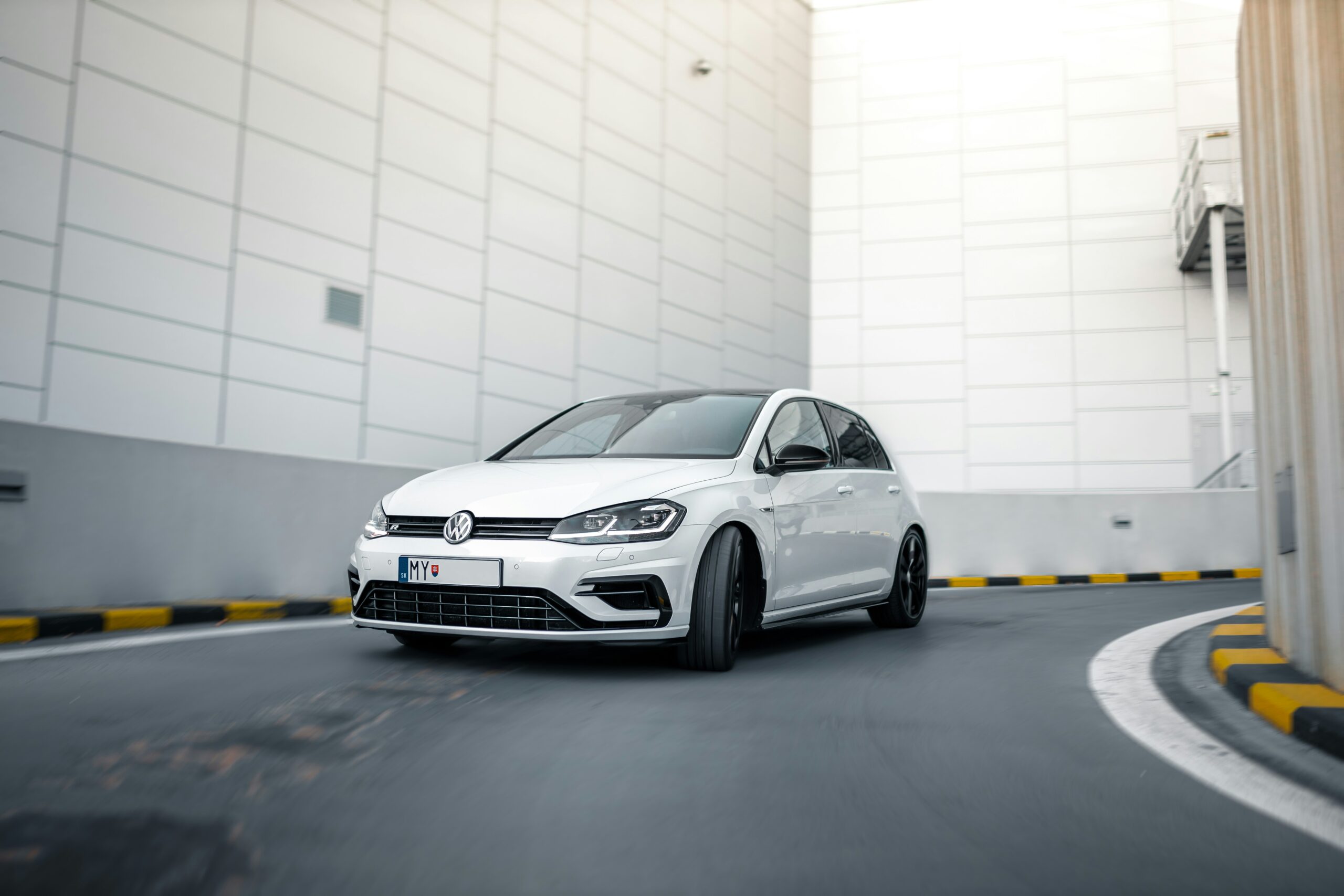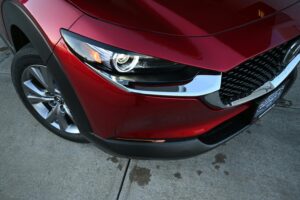
5. Restricted cargo capacity for larger items or pets
SUVs are known for their spacious interiors and ability to accommodate a large amount of cargo. However, when it comes to larger items or transporting pets, there may be some restrictions to consider. Due to their design, SUVs may not be as versatile as other vehicles when it comes to hauling oversized or bulky items. The limited cargo capacity and potential lack of flexibility in the rear compartment can pose a challenge for those needing to transport larger items such as furniture, sports equipment, or musical instruments.
In addition, if you have furry friends as part of your family, it’s important to note that SUVs can also have limitations when it comes to pet transportation. While many SUVs do have rear cargo areas that can be suitable for smaller pets or dog crates, larger animals may require more space. It’s crucial to consider the size and needs of your pets before deciding on an SUV, as restricted cargo capacity may not provide the necessary comfort and security for your furry companions during travel.
Considerations for SUVs:
While SUVs offer many advantages, there are also some considerations that potential buyers should keep in mind. One key factor to consider is the restricted cargo capacity for larger items or pets. Although SUVs generally provide more space compared to smaller vehicles, they may not be able to accommodate exceptionally large items or multiple pets comfortably. Therefore, if you frequently transport oversized loads or have multiple pets, it might be worth considering alternative options.
Another consideration is the higher fuel consumption and emissions associated with SUVs. Due to their larger size and weight, SUVs tend to consume more fuel, resulting in higher expenses at the pump. Additionally, they often emit more greenhouse gases, contributing to environmental concerns. It is essential to weigh the potential costs and environmental impact against the benefits an SUV provides, to ensure it aligns with your values and budget.
1. Higher fuel consumption and emissions
SUVs are known for their robust design and powerful engines, which unfortunately come at the cost of higher fuel consumption. Due to their larger size and weight, SUVs require more energy to propel, resulting in increased fuel consumption compared to smaller vehicles. This higher fuel consumption directly translates to higher emissions, contributing to environmental concerns such as air pollution and climate change.
The fuel efficiency of SUVs varies depending on factors such as engine size, weight, and aerodynamics. Generally, SUVs have a lower miles-per-gallon rating compared to sedans or smaller vehicles. This means that SUV owners often find themselves making more frequent trips to the gas station and spending more on fuel. Not only does this impact their budget, but it also adds to the overall carbon footprint, making SUVs less eco-friendly options for those concerned about the environment.
2. Increased purchase and maintenance costs
When considering purchasing an SUV, it’s important to take into account the increased purchase and maintenance costs associated with these vehicles. SUVs typically come with a higher price tag compared to smaller cars due to their larger size and added features. Additionally, the cost of maintaining an SUV can also be higher, as they often require more expensive parts and services.
The increased purchase and maintenance costs of SUVs can potentially have an impact on your overall budget. It’s crucial to carefully evaluate your financial situation and determine whether you can comfortably afford the initial price as well as ongoing expenses. It may be helpful to consider factors such as your income, savings, and other financial obligations before making a decision. Ultimately, understanding and accounting for the increased costs associated with owning an SUV can help you make an informed choice that aligns with your budgetary constraints.
3. Challenging parking and maneuvering in tight spaces
Finding parking and maneuvering in tight spaces can be a real hassle when driving an SUV. The larger size of these vehicles can make it difficult to squeeze into compact parking spots or navigate narrow streets. It’s not uncommon to spend extra time circling around, searching for a suitable parking spot that can accommodate the size of your SUV.
Furthermore, maneuvering an SUV in tight spaces requires a higher level of skill and precision. The wider turning radius and extended length can make it challenging to make sharp turns or navigate through crowded areas. This can be particularly problematic in cities where parking spots may be scarce, or when faced with narrow alleys or crowded parking garages. So, if you frequently find yourself in urban environments with limited parking options, the challenges of parking and maneuvering an SUV should definitely be taken into consideration.
4. Bulky size and difficulty in city driving
SUVs are notorious for their bulky size, which often poses challenges when driving in the city. Maneuvering through tight streets and fitting into compact parking spaces can be quite a task for these larger vehicles. Navigating narrow lanes or congested areas can become even more daunting, especially during rush hours or when city roads are packed with other cars. The sheer size of SUVs may require more effort and attention from the driver to ensure safe and smooth navigation through urban environments. However, it is important to note that these difficulties can be overcome with practice and experience behind the wheel.
5. Overkill for daily commuting or single drivers
For those who primarily use their vehicles for daily commuting or are single drivers, SUVs may be considered overkill. The larger size and capacity of SUVs can be unnecessary for individuals who only need to transport themselves and a few essentials on a regular basis. Furthermore, SUVs tend to have higher fuel consumption and emissions, which can be less economical and environmentally friendly for shorter travel distances.
In addition, SUVs often come with increased purchase and maintenance costs. The initial investment in an SUV is typically higher than that of a smaller or more compact car. Moreover, the maintenance and repair expenses for SUVs tend to be higher due to the larger and more complex components involved. For those on a tight budget or seeking a more cost-effective option, an SUV may not be the most practical choice.
As always, it is important to consider one’s lifestyle and specific needs when deciding on a vehicle. While SUVs offer a variety of benefits in terms of cargo capacity, off-road capabilities, and passenger comfort, they may not be the most suitable option for daily commuters or single drivers. Evaluating driving habits, fuel efficiency requirements, and financial considerations can help individuals make an informed decision about whether an SUV is the right choice for their specific circumstances.
Factors to Help You Decide:
Factors to Help You Decide:
When choosing between different types of vehicles, there are a few factors that can help you make an informed decision. Firstly, consider your lifestyle and specific needs. Think about the activities you engage in regularly and the demands they place on your vehicle. If you frequently go on off-road adventures or haul heavy equipment, an SUV may be the right choice for you. On the other hand, if you primarily use your vehicle for daily commuting or have a small family, a compact car or hybrid might be more practical and cost-effective.
Secondly, take into account your driving habits. If you tend to cover long distances or frequently drive on highways, you may want to prioritize fuel efficiency and opt for a smaller, more economical vehicle. Conversely, if you enjoy driving larger vehicles and prefer the feeling of power and control on the road, an SUV or a pickup truck might be better suited to your preferences. It’s important to consider your comfort, safety, and overall driving experience when choosing a vehicle that aligns with your lifestyle and habits.
1. Lifestyle and specific needs
When considering whether an SUV is the right choice for you, it is important to take into account your lifestyle and specific needs. SUVs are known for their versatility and ample interior space, making them a great option for those who frequently transport passengers or need to haul large items. Families, outdoor enthusiasts, and individuals with pets may find SUVs to be particularly beneficial, as they offer more cargo capacity and seating options compared to smaller vehicles.
If you often find yourself embarking on road trips or needing to transport a significant amount of cargo, an SUV may be the ideal choice for you. The spaciousness of these vehicles allows for comfortable long-distance travel and accommodates items such as camping gear, sports equipment, or even furniture. Additionally, SUVs often come equipped with features such as roof racks or towing capabilities, making it easier to carry additional items like bicycles or trailers.
2. Driving habits
Driving habits are an important factor to consider when deciding whether an SUV is the right choice for you. If you spend a lot of time on the road, especially for long distances or frequent road trips, an SUV may be a suitable option. Their larger size and comfortable interiors make them perfect for extended driving, providing ample space for passengers and cargo.
On the other hand, if you primarily use your vehicle for short commutes or city driving, an SUV may not be the most practical choice. Their bulkier size can make maneuvering in tight spaces and parking a challenge, especially in crowded urban areas. Additionally, SUVs tend to have higher fuel consumption, which can be a concern for those with more frequent stop-and-go driving habits in congested traffic. Considering your specific driving habits will help you determine if an SUV aligns with your needs.







